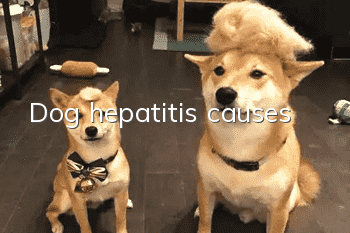Causes and treatments of dog allergies

Causes of allergies in dogs:
1. Inhalant allergies. Cigarettes, pollen, dander, dust, etc. will cause "atopic dermatitis" on the dog's skin.
2. Food allergies. Dogs’ food allergies are individual. Beef, dairy, chicken, wheat, eggs, corn and soy may all trigger allergies in some dogs. To combat food allergies, many veterinarians recommend homemade or hypoallergenic dog foods that avoid common allergens, incorporate novel ingredients like rabbit, duck, and venison for protein and carbohydrate sources, and Like green peas and sweet potatoes, etc.
3. Contact allergy. Parts with sparse hair, such as around the mouth or on the pads of feet, are prone to contact. If your dog has environmental allergies, you'll want to do everything you can to reduce the allergens in your home. Wash your dog's bedding and toys at least once a week and vacuum at least twice a week, including carpets, curtains, and other areas where dust collects.
4. Drug allergy. After taking medicine or getting an injection, the dog develops rashes all over the body and swelling at the injection site.
5. Parasitic infection. The most common allergy is caused by flea bites, but bites from various other parasites such as ticks may also cause allergic reactions in dogs.
Treatment methods for dog allergies:
It is recommended to check the allergen first, whether it is caused by food or certain factors in the external environment. You can take anti-allergic injections or oral medications to cut off allergens. If possible, you can eat some hypoallergenic prescription foods to prevent food allergies. It is recommended to go out less when the seasons change to prevent allergies caused by some pollen.
- Symptoms and Treatment of Cataracts in Dogs
- How to train German Shepherd title-taking skills
- Causes, symptoms and treatments of cystitis in dogs
- Nice and domineering female horse dog names
- What to do if your dog’s hair turns yellow and turns white
- Why pets need deworming
- The difference between canine distemper and parvovirus
- Symptoms and treatments for Teddy dog colds
- What happens if Alaska has diarrhea after giving birth to puppies? Here are some tips for you!
- What are the causes of Teddy's body odor?



